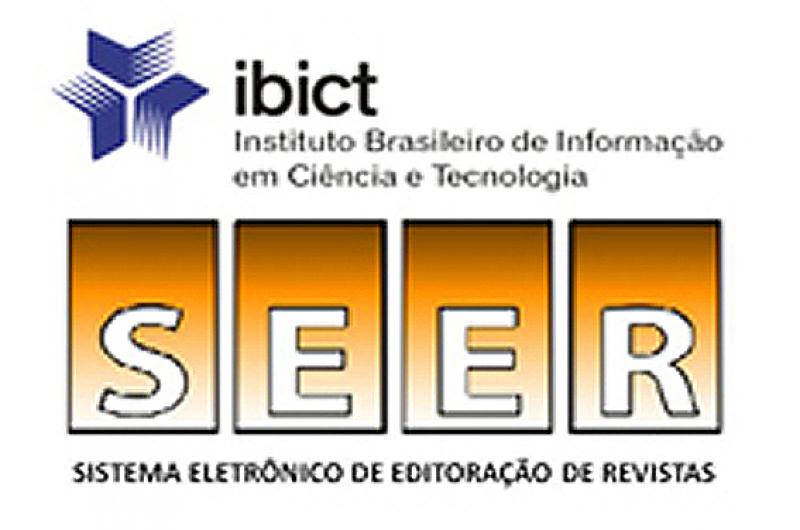Implicit Statistical Analysis and the Use of Digital Technologies in Mathematics Teacher Training
DOI:
https://doi.org/10.31416/rsdv.v13i2.1123Keywords:
Digital Information and Communication Technologies, initial or continuous training, and Implicit Statistical Analysis (ISA)Abstract
The initial training of future mathematics teachers plays a fundamental role in the development of their professional identity. With the rapid technological evolution and the constant updating of digital resources for the school environment and the mathematics classroom, it is essential that future teachers are prepared to integrate these technologies into their pedagogical practices. In this sense, this research aims to investigate the contributions of Digital Information and Communication Technologies (DICT) in the initial training of mathematics teachers, with the main objective of understanding how these technologies can be integrated into the training process, preparing future teachers for educational demands. The research was conducted with students of the undergraduate course in Mathematics at the State University of Paraíba (UEPB). An online questionnaire was used, distributed via Google Forms, containing questions about the preparation of future teachers to integrate DICT into their pedagogical practices, their experiences with these technologies during training, and their perception of the impact of DICT on education. The data were analyzed using Implicit Statistical Analysis (ISA), using CHIC software, version 7.0 (2024), which allows descriptive and interpretative analysis of the variables involved. The results show that most interviewees consider DICT to be fundamental for the initial and ongoing training of mathematics teachers. The research highlights the importance of DICT in teacher training, showing that these technologies not only enrich pedagogical practice, but also contribute to the ongoing professional development of educators.
References
ARROYO, M. G. Por novas fronteiras de reconhecimento. In: Currículo, território em disputa. 5ªed. Petrópolis, RJ: Vozes, 2013.
BOGDAN, R.; BIKLEN, S. Investigação qualitativa em educação: Uma introdução à teoria e aos métodos. Porto: Porto Editora, 1994. Acesso em: 13 mar. 2024.
BRITO, C. S.; SANT’ANA, C. C. Formação docente e jogos digitais no ensino de matemática. EDUCA - Revista Multidisciplinar em Educação, v. 7, n. 17, p. 415–434, 27 maio 2020. https://doi.org/10.26568/2359-2087.2020.4100.
CASTRO, A. L. A formação de professores de matemática para uso das tecnologias digitais e o currículo da era digital. In: XII Encontro Nacional de Educação Matemática. São Paulo– SP, 2016. Disponível em: http://www.sbembrasil.org.br/enem2016/anais/pdf/6796_3527_ID.pdf. Acesso em: 20 jun.2024.
FACCIONI, A. C.; SILVA, D. V.; MORAES, S. R. de. Uma análise sobre o uso das tecnologias digitais de informação e comunicação (TDIC) na formação de professores de matemática, química e ciências biológicas de uma universidade pública do Paraná. Revista Brasileira de Ensino Superior, v. 6, n. 3, p. 49–66, 25 jul. 2022. https://doi.org/10.18256/2447-3944.2022.v6i3.4075.
FERREIRA, L. F. S.; SILVA, V. M. C. B.; MELO, K. E. S.; PEIXOTO, A. C. B. Considerações sobre a formação docente para atuar online nos tempos da pandemia de COVID-19. Revista Docência do Ensino Superior, v. 10, p. 1–20, 29 dez. 2020. https://doi.org/10.35699/2237-5864.2020.24761.
GRAS, R.; ALMOULOUD, S. A. Implicação Estatística como Ferramenta em um Exemplo de Análise de Dados Multidimensional. Educação Matemática Pesquisa, São Paulo, v. 4, n. 2, p. 75-88, 2002.
NONATO, K. J.; COSTA, N. M. L. da. Rompendo barreiras: desafios de professores das licenciaturas em matemática para integrar tecnologias digitais ao currículo. Educação Matemática Sem Fronteiras: Pesquisas em Educação Matemática, v. 3, n. 2, p. 194–214, 23 dez. 2021. https://doi.org/10.36661/2596-318X.2021v3n2.12745.
OLIVEIRA, W.; SILVA JUNIOR, C. G. da. Uso de Jogos no ensino da Matemática: Uma análise entre os jogos tradicionais e os jogos digitais, baseada em pesquisa e mapeamento dos materiais encontrados na Web. 30 abr. 2014. Acesso em 30 abr. 2014.
OLIVEIRA, C. A. Tecnologias digitais da informação e comunicação (tdic) móvel e ubíqua na formação de professores que ensinam matemática. Caminhos da Educação Matemática em Revista (Online), v. 11, n. 3, p. 190–204. Acesso em 10 ago. 2021.
SILVA, C. M. B.; SANTOS, E. O. Formação continuada do professor do ensino médio integrado: concepções e importância. Revista Brasileira da Educação Profissional e Tecnológica, v. 1, n. 18, p. e9281–e9281, 6 jan. 2020. https://doi.org/10.15628/rbept.2020.9281.
SILVA, E. N.; LIMA, F. J. de. Tecnologias digitais na formação de professores: um panorama de pesquisas apresentadas no encontro nacional de educação matemática. Boletim Cearense de Educação e História da Matemática, v. 8, n. 23, p. 892–905, 17 jun. 2021. https://doi.org/10.30938/bocehm.v8i23.4868.
STURION, L.; CARVALHO, A. A. A.; REIS, M. C.; ROCHA, Z. F. D. C. As dificuldades dos professores de Estatística na utilização de tecnologias midiaticas. Revista de Ensino de Ciências e Matemática, v. 9, n. 4, p. 78–93, 29 set. 2018. https://doi.org/10.26843/rencima.v9i4.1712.
SANTOS, L. A. S. Vantagens e dificuldades das tecnologias de informação e comunicação na educação. Revista Ibero-Americana de Humanidades, Ciências e Educação, v. 8, n. 1, p. 206–217, 31 jan. 2022. https://doi.org/10.51891/rease.v8i1.3775.
SOUZA, R.; CALEJON, L. Uso da tecnologia da informação e comunicação em uma sequência didática incluindo software GeoGebra no Ensino da Estatística Descritiva. Revista de Ensino de Ciências e Matemática, v. 10, n. 4, p. 227–244, 18 jul. 2019. https://doi.org/10.26843/rencima.v10i4.2432.
Downloads
Published
How to Cite
Issue
Section
License
Copyright (c) 2025 Revista Semiárido De Visu

This work is licensed under a Creative Commons Attribution 4.0 International License.















